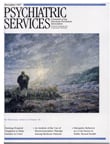The Vulnerable Therapist: Practicing Psychotherapy in an Age of Anxiety
Helen Coale's book, The Vulnerable Therapist, is, as the author informs us, a "passionate book with an attitude." Coale, a licensed marriage and family therapist, "explores therapist and client vulnerability in a professional context that is increasingly (and unethically) rule-based." With this opening statement, the author offers her observations on the construction and deconstruction of common ethical dilemmas facing clinicians. The aim of her book is to challenge professional ethics as they exist today. Coale believes that "ethics rules are increasingly limiting therapeutic possibilities for clinicians and clients."
In the first ten chapters, Coale describes the "crisis of meaning in the mental health professions" and the fundamental limitations of rule-based ethics. Through detailed accounts of inhibitory regulations and economic and legal constraints, she outlines ethical challenges for practicing therapists. In the remaining chapters, she offers alternative perspectives to address these ethical dilemmas. Coale does a fine job of clearly articulating the use of more than one theoretical approach. Her discussion of multiple theoretical approaches to ethical problems is a strength of the book and may be of particular benefit to beginning practitioners as they struggle to identify a theory that suits their practice and person.
Although Coale advocates for a more complex and therapeutically sensitive understanding of ethical dilemmas, her view of ethics codes as concrete structures rather than as guiding parameters that orient a therapeutic conversation is not useful. She objects to ethics codes that hold the "therapist totally responsible for maintenance of professional boundaries," and she freely abandons the concept of the fiduciary relationship. The tone of the text is polemical. Often the author's opinions are overdrawn to the point of caricature and ultimately decrease her credibility.
There are other problems with the book. While it is easy to agree with the author's social-constructivist perspective, her application of theory and examples of contextually based ethics often miss the mark. For example, she describes a champagne celebration some years earlier for a termination of a patient's therapy. Coale often fails to comprehend the impact of her person and her needs on the clinical encounter, and her interventions often seem self-serving.
The Vulnerable Therapist, a provocative but uneven book, offers a detailed account of ethical dilemmas and challenges and urges the reader to get involved in changing clinical practice for the better. This book is intended for all practicing psychotherapists. Although the book has strengths, the problems outweigh the strengths, largely because of the treatment of clinical material and the hyperbole of the author's language.
Ms. Bridges is a clinical supervisor in the department of psychiatry at Cambridge (Mass.) Hospital and a lecturer in psychiatry at Harvard Medical School.



